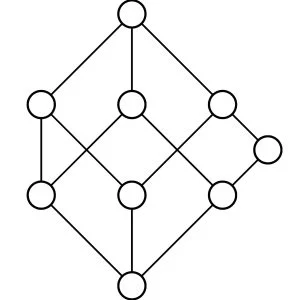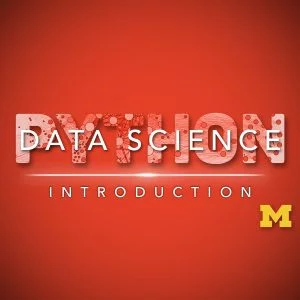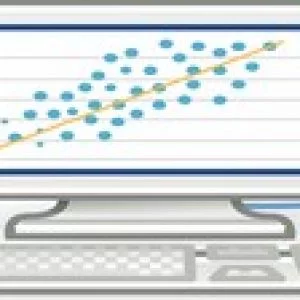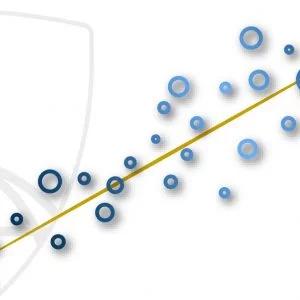
This course focuses on the concepts and tools behind reporting modern data analyses in a reproducible manner. Reproducible research is the idea that data analyses, and more generally, scientific claims, are published with their data and software code so that others may verify the findings and build upon them. The need for reproducibility is increasing dramatically as data analyses become more complex, involving larger datasets and more sophisticated computations. Reproducibility allows for people to focus on the actual content of a data analysis, rather than on superficial details reported in a written summary. In addition, reproducibility makes an analysis more useful to others because the data and code that actually conducted the analysis are available. This course will focus on literate statistical analysis tools which allow one to publish data analyses in a single document that allows others to easily execute the same analysis to obtain the same results. The mission of The Johns Hopkins University is to educate its students and cultivate their capacity for life–long learning, to foster independent and original research, and to bring the benefits of discovery to the world.
Instructor Details
Courses : 4
Specification: Reproducible Research
|
53 reviews for Reproducible Research
Add a review Cancel reply
This site uses Akismet to reduce spam. Learn how your comment data is processed.

FREE







Israel D D G –
Good material
Moshe P –
The course seems to be based on lectures recorded at different times. Some points discussed are repetitive. the quality of content is good though. I believe the whole material may have to be updated and, potentially, re–recorded.
Nino P –
To be a data scientist you must use RMarkDown. Here you learn how to use it. A must do course for data scientists and highly valuable.
Rok B –
Not the most important course in the series, but I give it 3 stars. Positives, I’m impressed with RMarkdown. It is a handy tool to make reproducible research. I also think the final assignment was very interesting. You can train cleaning data. Negatives, lectures from weeks 3 and 4. They are poorly recorded and have little to no value for the course
Avolyn F –
I was really passionate about the subject matter, but, although I have experience in R, apparently not enough to complete the assignment. Would have liked a little more warning that this would be needed, I was more interested in the topic of Reproducible Research, which while I agree is easier done via code of some kind, shouldn’t be a topic specific to R, should be applicable to Python, SQL, whatever. Might have time to revisit this, but will probably need to take a few more R classes to even be able to complete, likely won’t get around to it, but the first 2 weeks were worth the cost of paying for a certificate, I guess.
gerson d o –
GREAT course!!!!!!!!!!!!!!!!!!
Jean–Philippe M –
Lack of practical cases. The two cases are not really interesting and lack of details.
Jean Philippe M –
Lack of practical cases. The two cases are not really interesting and lack of details.
Stefan H –
Very repetitive in context of earlier introduction to the topic and also throughout the weeks. Generally it doesn’t feel there is much of a take–away and not sure it deserves its own course.
Edouard A –
Interesting projects
Amy B P –
Very good course!
Santi M –
good course
Lakshay S –
Pathetic It was . Not at all Interesting !!
Joe D –
The two projects were interesting and built on skills learned in the previous four courses in this specialization that focused on using the R language. The video lectures were largely repetitions of the course text, which is fine, some people prefer videos, others prefer texts. (I read the text and was fine with skipping around the videos and/or playing them at 2x speed.) Perhaps the most useful skills learned in this course were during the projects where we did some data cleaning and analysis, then wrote up our results in an R markdown file (.Rmd) and published to Rpubs. Overall enjoyable experience. The most useful “hack” was learning how to preserve markdown files in the Rstudio settings so that when you push your .Rmd s to github, you get a nice readable markdown file.
Martin G –
Interesting content. However, it can get somewhat repetitive.
Ishwarya M –
Without taking this course wouldn’t have fully understood the importance of reproducible research in data science. Thank you so much. I recommend this course for all data scientists.
Thiago –
course material and projects help a lot in learning and tips on how to better document research and projects
Jessica R –
Very useful in bringing together skills learned in the earlier courses of the Data Science specialization: R programming, R Markdown, knit, RPubs.
Connor B –
Course Project 2 was fun and learned a lot
Jorge B S –
I have found this course very useful in order to learn the keys of reproducible research. Moreover, both course projects are useful for putting other skills of this specialisation into practice. I recommend it!
Robert J C –
It’s good to learn R Markdown.
Bla~ Z –
Very nice project at the end of the course!
Tomasz S –
Extremely important course.
Rizwan M –
good
Muhammad Z H –
learning alot
Abu R B K –
Good but quite hard
Mehrdad P –
Course nicely highlighted the importance of reproducible research and the use of markdown and knitr packages.
Angela C –
Fantastic course!
Courtney R –
I really appreciated the topics covered in this course. Is a wonderful follow–up to the Exploratory Data course.
Nilrey J D C –
A very good course to know why it is important to have a reproducible research.
Pitak P –
Thank you
Ratanaporn –
Congratulations
Luiz E B J –
This is a good course tht open our minds and eyes to the relevance of Reproducible Research.
Esteban R F –
The projects in this course were a real challenge, which demanded to tackle those problems with a mind willing to go to the hedge and discover new horizons. The result was that I ended up the course with real skills for processing data in a reproducible process.
Fabien N –
I really liked the assignments projects !
Manuel M M –
Nice course. you learn quite a lot of things although it could be a little bit more complex
Johnnery A –
Excellent!
Shubham S –
Thank you instructors, for making me realize the importance of reproducible research.
Marcela Q –
A little repetitive and basic but useful!!!!
Amit S –
Very Good Content
Eduardo S B –
The course is nice. However, I think the last assignment is simply too much.
Trevor G –
I thought this was a very helpful class. Brought together the first 4 classes really nicely.
Anton K –
The material is shallow. Projects are way too time demanding. Everybody knows that data cleaning is a routine and long process. That is precisely why nobody likes it. And if there’s only one way to clean the data – by hand and only after reading a lot of related database documentation – this kills all the fun of studying and makes the overall picture of consepts relations unclear.
Onedio S S J –
Excelent!
Gary T –
Very critical course!!
Jordan I –
Great course that provides a structure for analysis and how to challenge the analysis. I found the assignments hard. The lack of information about the data for the assignment represented a real–life situation.
Mathew K –
A pretty good coverage on the need for reproducibility and the best practices to make it happen.
Amanyiraho R –
Very interesting and tackles a very important issue that Data scientists always miss–out, reproducibility of your project
ONG P S –
Very practical and knowledge learned can be applied into my works as auditors. This can benefit any fields involving using data.
Willie C –
Lecture videos were very repetitive. Course projects were repetitive, too. Important information, but didn’t need to be stretched out over a full “four–week” course.
Rob S –
very interesting, but a pity about the errors that occur due to incompatible software
Vishwamitra M –
Highly recommended for beginners to learn the basics of Data Science, Re producibility and how to write a good report around the analysis done by you as a data analyst.
David W –
Very interesting content